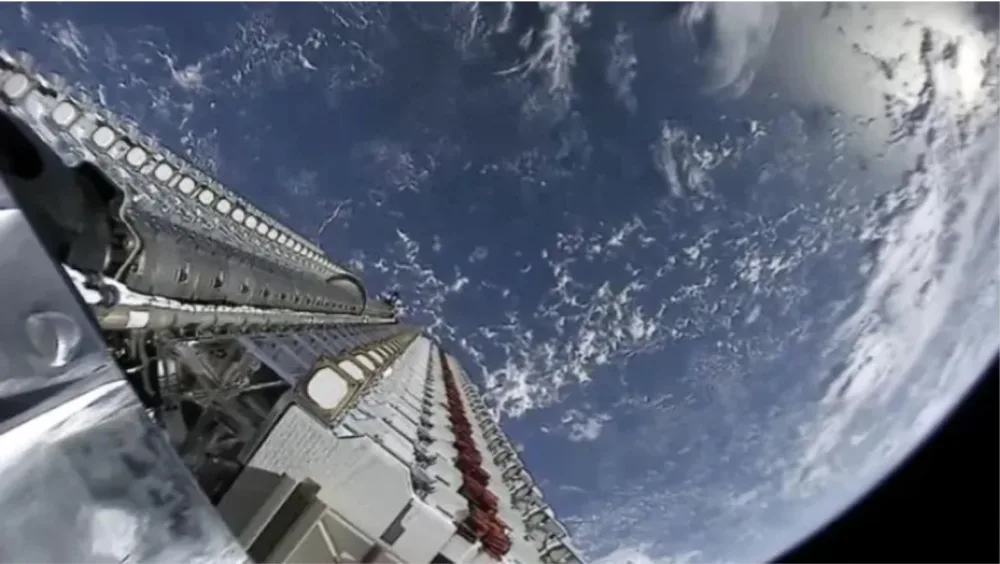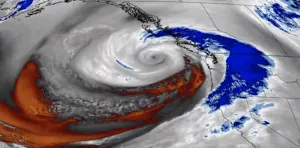
Elon Musk's satellite internet plan gets green light from Canadian regulator
The Canadian Radio-television and Telecommunications Commission has approved an Elon Musk-owned company's application to provide low Earth orbit satellite internet to rural Canadians.
Space Exploration Technologies Corp (SpaceX) is Musk's rocket and spacecraft company.
One of the company's projects is to bring high-speed internet service to hard-to-reach rural areas around the globe by launching thousands of small satellites that will orbit just 550 kilometres above the Earth, vastly speeding interaction with residential computers on the ground.
Traditional telecommunications satellites orbit at more than 20,000 km above the Earth.
The CRTC approval letter is dated last Thursday and addressed to SpaceX's chief financial officer, Bret Johnson.
"The Commission received 2,585 interventions regarding Space Exploration Technologies Corp.'s BITs application," reads the notice.
"After consideration of the comments received, the Commission has approved the application and a BITS licence is enclosed."
The vast majority of the interveners were individual Canadians living in rural areas of the country who support the application.
WATCH BELOW: DRIVING A CAR THROUGH SPACE, STARMAN JUST MADE ITS FIRST FLYBY OF MARS
AIMING FOR NETWORK OF 12K SATELLITES
SpaceX has been launching trains of 60 satellites roughly twice a month since May 2019.
The most recent launch took place at Cape Canaveral on Sunday aboard the company's Falcon 9 reusable rocket.
That brings the total number of orbiting Starlink satellites to 835. Eventually, there will be 12,000 satellites in the network.
It is not clear how soon Canadians will be able to access Starlink's service.

A SpaceX craft launches a cluster of 60 Starlink satellites. More than 800 Starlink satellites are in low Earth orbit, with thousands more to come. (SpaceX, Twitter)
SpaceX has said it will begin beta tests on the service with volunteer households in Canada and northern areas of the United States this fall.
Musk, who is also the force behind electric car manufacturer Tesla, has been cautious about predicting how well the service will work, telling attendees at the Satellite 2020 Conference in Washington, D.C., in March that it is aimed at the three to four per cent of rural customers "who simply have no connectivity right now, or the connectivity is really bad."
SpaceX did not respond to a CBC request for comment Monday.
This article, written by Connell Smith, was originally published for CBC News.










